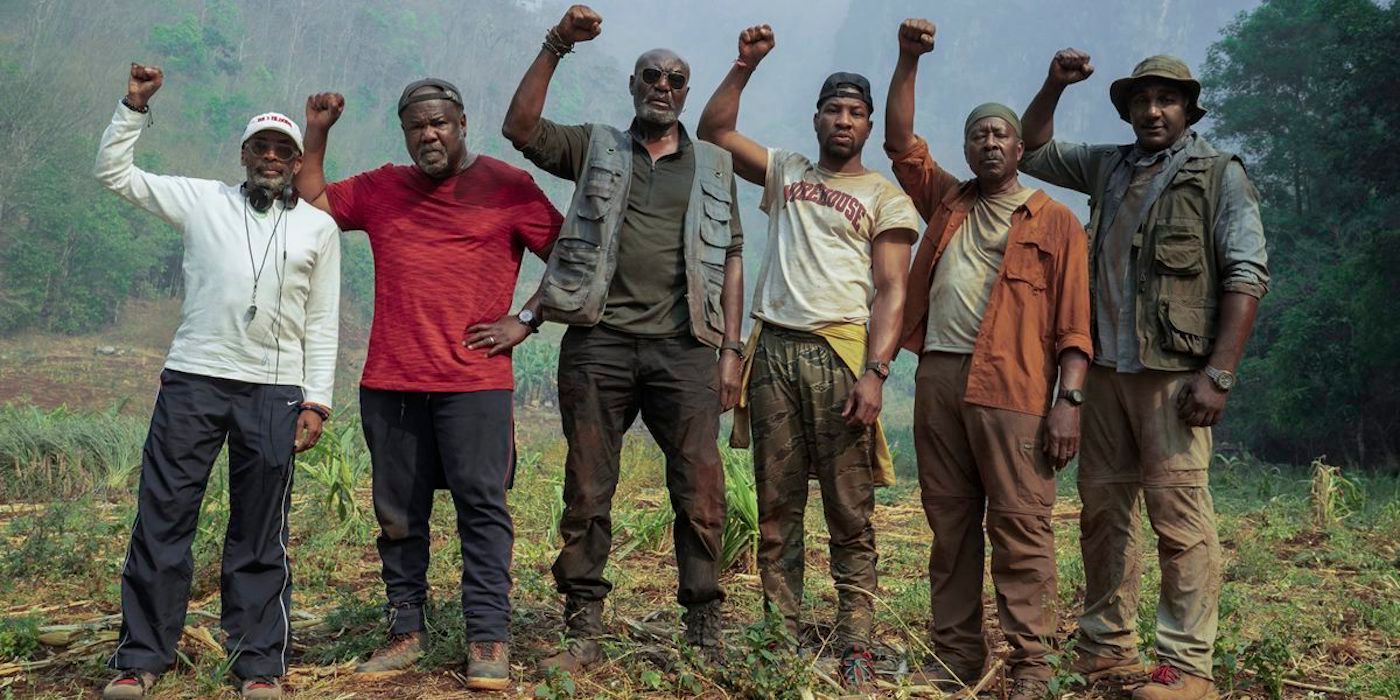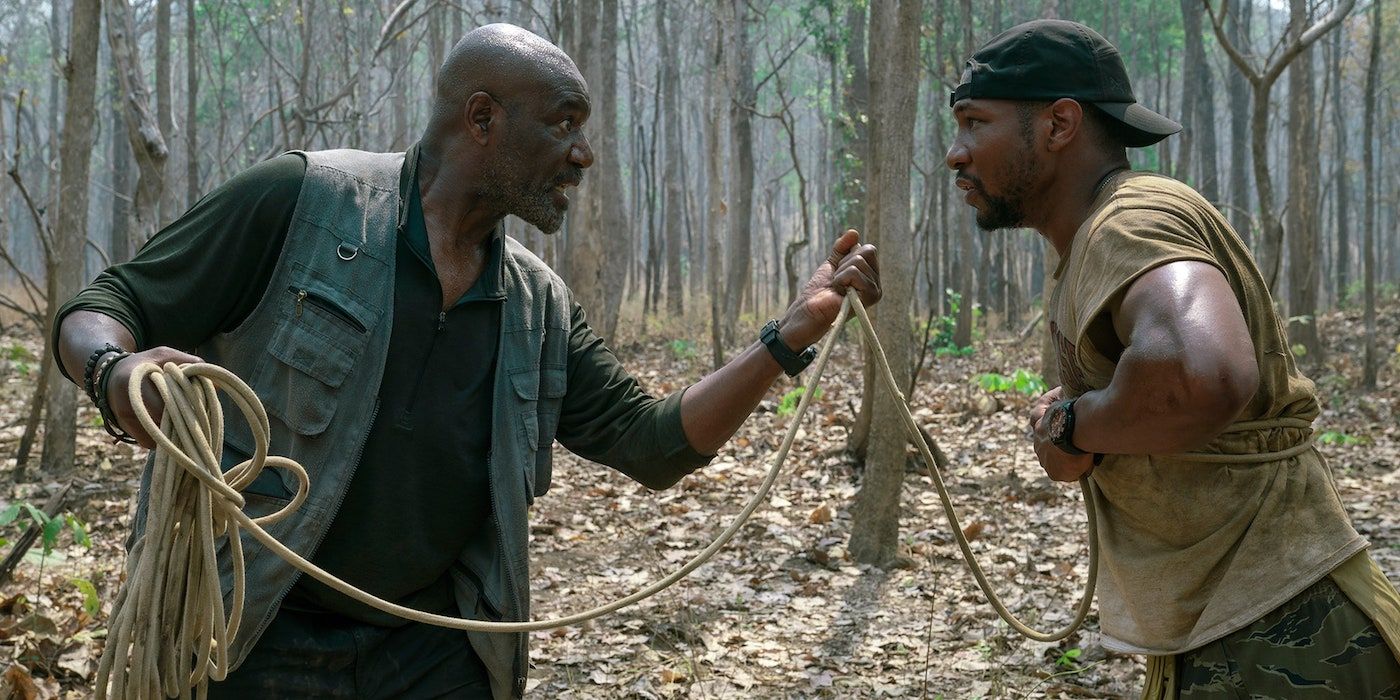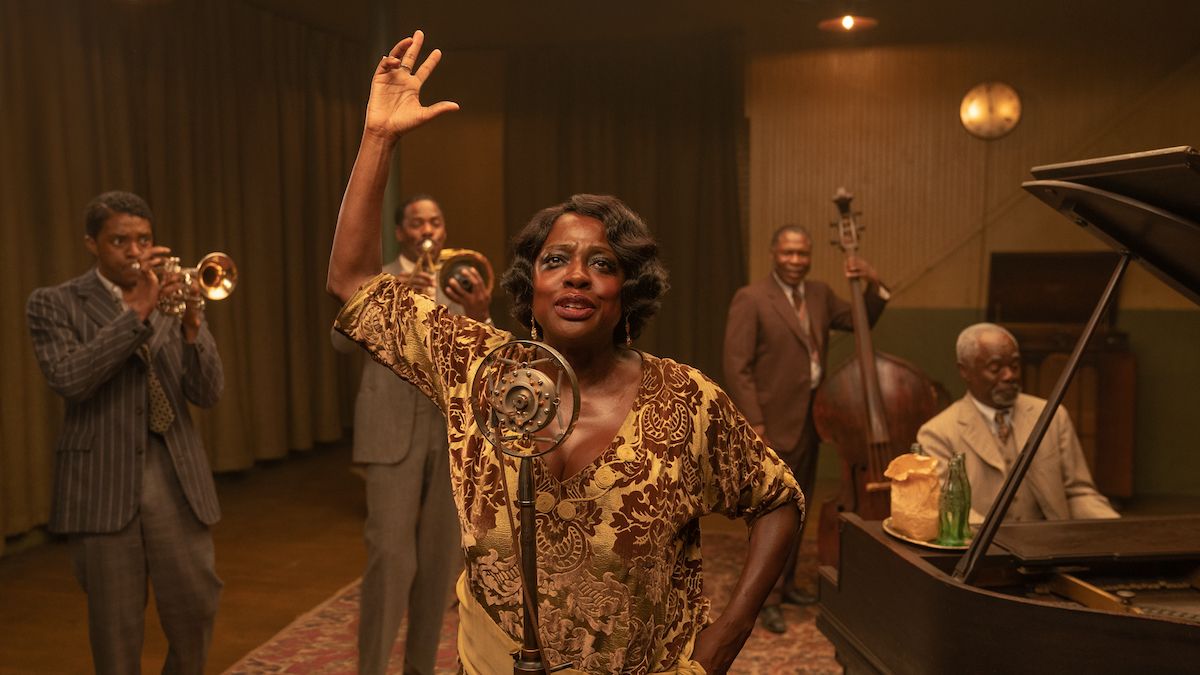The 2020/2021 awards season was always going to be controversial. With eligibility rules changed and with the lines between movies and TV increasingly blurring, not to mention the pandemic's effect on production and release schedules, nobody knew what to expect from this year's ceremonies. Then came the announcement of the 2021 Golden Globe nominations, which will (and should) layer on another regrettable but predictable controversy. In a culturally and politically challenging year that featured numerous expertly made and relevant films created by Black professionals, the Hollywood Foreign Press Association mostly ignored them. Yet again, awards shows are celebrating white competence over Black excellence-- to their detriment.
The most egregious snub is the complete shut out of Spike Lee's Da 5 Bloods. The film was widely expected to garner several nominations for picture, director and its lead actors, namely Delroy Lindo and Chadwick Boseman. Lindo's career-best performance as a Trump-supporting Vietnam Vet with PTSD has only taken a critical backseat to the late Boseman's incredible work in Ma Rainey's Black Bottom. Da 5 Bloods might not be Lee's best film, but it's certainly bold, visionary and awards-worthy. Lee is no stranger to the awards cold shoulder, as he's repeatedly spoken out about the fact that Black films are underrepresented at awards shows.
In fact, no Black films managed to crack the best picture lineup. Hamilton, which houses a diverse cast, was nominated for Best Motion Picture -- Musical or Comedy. However, what is often seen as the more prestigious category, Best Motion Picture -- Drama, is full of entirely white-created and white-led films. Noticeably absent are titles like Ma Rainey's Black Bottom, One Night in Miami, Judas and the Black Messiah, The United States vs. Billie Holiday and Malcolm & Marie. It was unlikely that all of these acclaimed movies would've been nominated, but the fact that none of them were reeks of bias.
Ma Rainey's Black Bottom did win recognition for its co-leads, Viola Davis and Boseman, who are undeniable as the real-life mother of the blues and her headstrong trumpet player. But the Netflix movie was left out of other topline categories. The Denzel Washington-produced adaptation of August Wilson's stage play was a huge hit with critics and audiences alike, and like Da 5 Bloods, it effectively used the past to highlight Black struggles that persist in the present. Similarly, Andra Day received a nod for her portrayal of legendary singer Billie Holiday, as did Leslie Odom Jr. for his turn as Sam Cookie in One Night in Miami. That film got first time director Regina King some recognition, but Kemp Powers (who also co-wrote Soul) was snubbed for adapting his own screenplay.
Daniel Kaluuya, who plays Fred Hampton in Judas and the Black Messiah, was honored with a Best Supporting Actor nod. Like Ma Rainey's Black Bottom, the film about the Black Panther chairman is among the best-reviewed of the eligibility period, and there's been considerable awards and audience buzz building for it. Adding insult to injury, Judas and the Black Messiah has subject matter overlap with Aaron Sorkin's The Trial of the Chicago 7. Both films deal with protest movements in the 1970s and share some of the same characters. The latter focuses on the white personalities, has a wholly unrealistic ending and is a much more paint-by-numbers kind of awards movie. It has its merits, but it was less well-received and is more theoretical in dealing with its themes. The former focuses on Black organizers and is passionate, urgent and unflinching.
A lack of Black representation isn't the only problem, either. Minari, a critical darling that home viewers have yet to see, could only run in the (outdated) Foreign Language category. Worse yet, none of its actors were nominated. Historically, Asian actors have an even harder time getting recognition, as was the case with last year's groundbreaking Parasite.
Art is subjective, and it's not any single awards body's responsibility to fix issues of representation. Their task is simply to praise work they deem exceptional. Obviously, white people make good movies, too. Multiple nominees Nomadland and The Father have strong scripts and performances, and they deserve their accolades. It's just that Black stories are really important in today's political era. What seems unconscionable is that Hollywood had begun to address some of the industry's inequities, and Black talent seized the opportunity and began to achieve a higher level of output. In truth, that the HFPA failed to acknowledge that says more about their preconceptions and prejudices than the quality of these Black artists' work.



